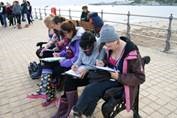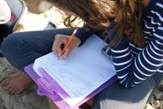Geography
| Curriculum Intent and Overview | |
|---|---|
| In Geography, our aim is to develop student’s curiosity of the physical and human world around them. They will find their place as global citizens by investigating the big questions that face us in the 21st century and by understanding and making decisions about global issues. Our students will develop a wide range of transferable skills acquired through varied learning activities and through fieldwork; by which students can engage and develop a deep understanding of geographical processes and enquiry. | |
|
|
|
‘The study of geography is about more than just memorising places on a map. It's about understanding the complexity of our world, appreciating the diversity of cultures that exists across continents. And in the end, it's about using all that knowledge to help bridge divides and bring people together.’ – Barack Obama
The Department
Curriculum Leader (Acting): Mr J James
KS3
The Key Stage 3 Curriculum is designed to allow students to gain a thorough understanding of Geographical topics and issues at a range of scales. Our aim is to develop student’s curiosity of the physical and human world around them. They will find their place as global citizens by investigating the big questions that face us in the 21st century and by understanding and making decisions about global issues. Our students will develop a wide range of transferable skills acquired through varied learning activities and through fieldwork; by which students can engage and develop a deep understanding of geographical processes and enquiry.
An overview of the Key Stage 3 curriculum:
Year 7
- Extreme Winds - Learning about hurricanes and tornadoes with a focus on case study events e.g. Hurricane Katrina. Exploring where hurricanes occur & why, and what their impacts and effects have been.
- Mapping and Fieldwork Skills - How useful are maps, and how do we read them? Can maps lie to us? What different types of maps are there? How do we create our own map? What are the processes of a Geographical Enquiry?
- Our Island Home - Learning about the physical and human features of the United Kingdom. Where do we live, and how might that change in the future?
- Africa - Learn about the variety of physical landscapes that exist across Africa. Where is the Horn of Africa, and how is it developing? What is a nomad, and what are the challenges and opportunities living in a desert?
- Australia and Coral Reefs - What is Australia like, and how has it developed? What are coral reefs, where are they located, and how are they under threat?
Year 8
- Poles Apart - Learning about the ecosystem associated with extreme climates. What temperatures would you expect? Why are so many countries interested in the Arctic?
- BRIC’s - To learn about two of the world's energy superpowers and fastest growing economies. What problems may exist in these areas?
- Tremendous Tectonics - Learning about earthquakes, volcanoes and tsunamis. Focusses on the cause, effect and response of the Japanese earthquake and tsunami 2011.
- Water - Learning about the challenges of water for the UK. Looking at physical systems, flooding and insecurities.
- Crime - An introduction to local and geopolitical conflicts globally. Students will use GIS to produce a crime proof area.
- Totally Tropical - Learning about tropical rainforests focusing on Brazil. What they are like, what goes and lives there. How are they under threat, and how can they be managed sustainably?
Year 9
- Wild Weather - Learning about what weather is and how it affects us. Why do we study and report the weather? How can we record elements of the weather? Understanding climate change.
- Global Fashion and Sustainability - Learning about where your clothes come from and how they are made. Focus on the conditions of sweatshop workers through examples such as Nike and Gap.
- Development- Learning about the differences in levels of development around the world. What has created the development gap? How can we measure it? Do charities and aid help or hinder development?
- Living World - AQA GCSE Learning about small scale ecosystems, the earth’s main biomes, and a focus on the Amazon Rainforest and the Thar Desert.
What support will be needed?
- Encouraging reading of topical issues e.g. climate change, the migration crisis - the Horrible Geography books offer a fun introduction to a variety of topics.
- Watching relevant TV documentaries and Geographical film e.g. Planet Earth, Arctic live
- Museums e.g. Science Museum and Natural History Museum
How will students be assessed?
- Each module will be assessed using a range of assessment types including timed tests, quizzes, enquiry based projects and longer written responses. This enables students to practice new geographical skills and explain and analyse the content studied.
- End of year examination
GCSE
Exam Board: AQA
Specification Number: 8035
What will be studied?
The AQA GCSE Geography Specification is an exciting course based on a balanced framework of physical and human geography. It allows students to investigate the link between the two themes, and approach and examine the battles between the man-made and natural worlds.
Students who complete the course will have the skills and experience to progress onto A-level and beyond.
Learning Methods
Students are taught using a variety of methods and resources. In lessons, students will have access to a range of textbooks that provide the basis for the specification content. These are enhanced using DVDs, video clips, internet resources and various publications. Discussions, presentations, role play and decision making exercises are used, particularly when studying real examples. Students will inevitably develop a range of skills that will help in other subjects and in employment, such as ICT, research, map skills and graphical skills.
Fieldwork is an essential component of the course with pupils needing to complete a physical study. Students will be offered the opportunity to complete their fieldwork during two fieldwork visits, where they will be able to collect primary data and gain new geographical skills.
How is the course assessed?
There is no controlled assessment at GCSE. All student knowledge and understanding will be assessed through examination. The three examined modules will be tested in the May/June of Year 11 in three examinations, each lasting between 1 hour 15 mins and 1 hour 30 minutes. Frequent low-stakes mid and end of unit tests and mock exams will be carried out in order to support students’ progress and provide feedback on their attainment and exam technique.
What wider reading is recommended?
- Wider World Magazine
- BBC News - Science and Environment section
- BBC Bitesize
- GCSE Pod
- AQA website for assessment materials
What websites are recommended?
What equipment is needed?
A calculator, protractor, ruler, pen and pencil are essential at all times.
A Level
Exam Board: Edexcel
Specification Number: 9GE0
Course Content:
The course is designed to develop a sound understanding and knowledge of geographical issues and to develop and use geographical skills. There is a balance between physical and human geography, covering some topics already studied. Current issues include globalisation, hazard trends, managing coasts and rebranding cities. The use and management of resources form part of the course, as will a fieldwork investigation.
Assessment:
The course is taught by physical and human geography specialists and involves a variety of approaches to learning. Students are encouraged to discuss their ideas and those of others and to think critically about their views. Students will be expected to do wider reading and research in order to develop their knowledge and understanding of geographical concepts and processes discussed in class and to write geographical essays. Guidance in the preparation, structuring and presentation of essays and data response exercises will be given. Students will be given the opportunity to develop a range of skills and techniques, including the use of maps, and images at different scales necessary for geographical study. The use of statistical methods and the collection and analysis of data is an integral part of the course and a fieldwork residential is organised for Year 12 students. In addition, the department runs a bi-annual international visit to locations such as Naples and Iceland to further explore key geographical issues. A variety of extra-curricular opportunities are available for students including public lectures and lunchtime discussion groups.
Why Geography at St Albans Girls’ School?
Geography at STAGS will offer you the opportunity to study a range of key issues at local, national and international levels. You will be taught by outstanding specialist teachers who will lead engaging and innovative lessons. The Geography Department runs a wide range of both day and residential field trips and also conducts international visits to a range of Geographical destinations.
Expectations of students:
Students in Geography are expected to prepare thoroughly for lessons, and participate in class discussions, presentations and group activities. They should also have a general interest in the world around them and be prepared to carry out independent background reading and keep up to date with current issues. The nature of Geography requires students to have a thorough grasp of scientific and literary skill sets.
What websites are recommended?
- www.bbc.co.uk – Science/Environment/Politics section
- www.geography.org.uk/journals/journals.asp
- www.geography-site.co.uk
What equipment is needed?
A folder, calculator, ruler, pen and pencil are essential at all times.
References to recommend?
- Geography Review
- Geofactsheets
- Geographical Association lectures/conferences
- Royal Geographical Society lectures/conferences
Career Paths:
The subject enables students to develop a whole range of skills making them highly employable. Throughout the course students have an opportunity to develop their numerical, communication, ICT and problem solving skills. They are encouraged to work with others, particularly when doing fieldwork.


